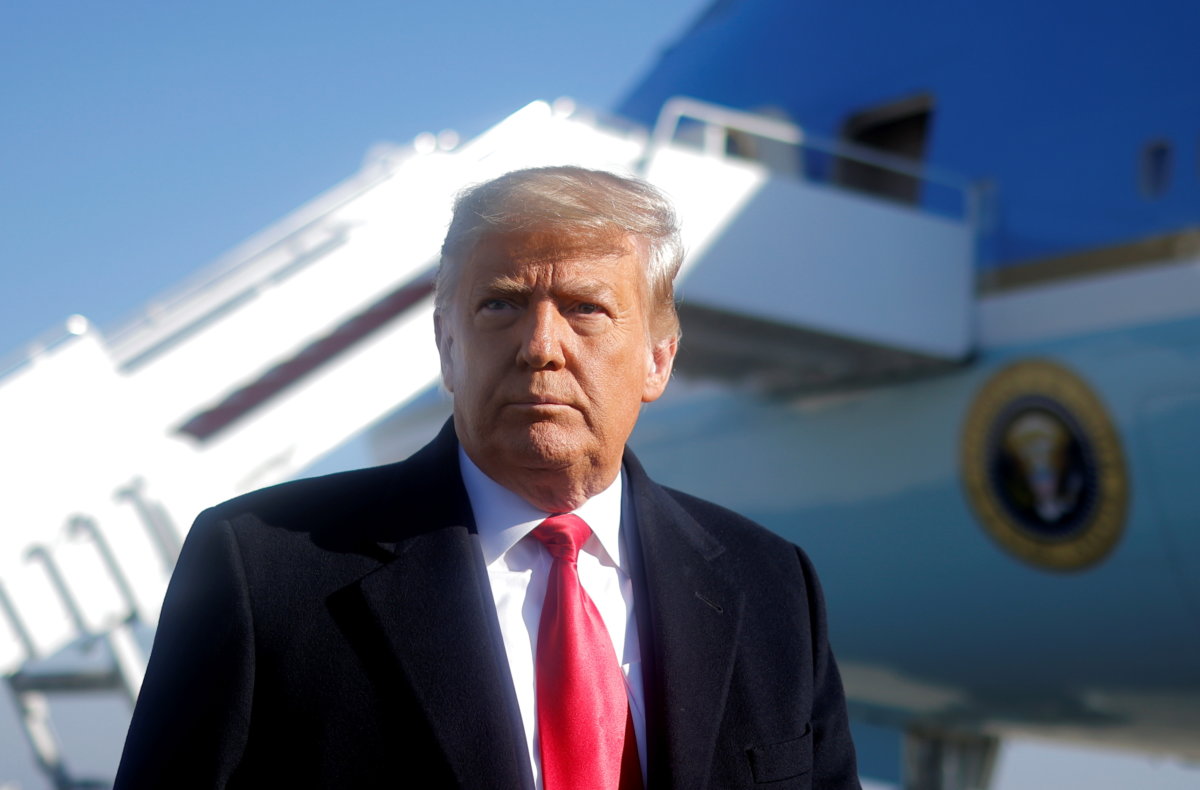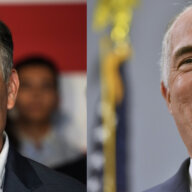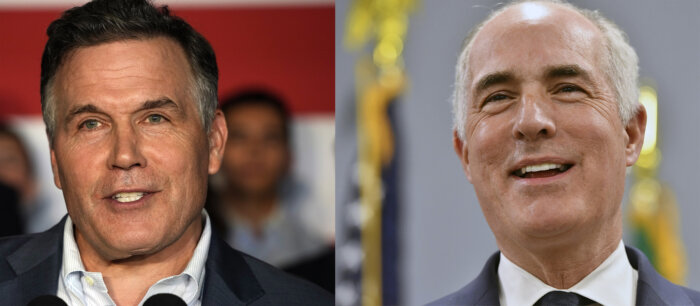By Richard Cowan and David Morgan
America will be in uncharted territory when the U.S. Senate meets as soon as next week for the second impeachment trial of Donald Trump, a case against the outgoing president that one Democrat preparing for arguments called “shockingly evident.”
The House of Representatives on Wednesday voted to impeach Trump on charges of incitement after his supporters rampaged in the Capitol following a speech in which the Republican urged them to fight President-elect Joe Biden’s election victory. Trump falsely claims he lost due to widespread voting fraud.
Representative Diana DeGette, one of nine Democratic impeachment managers who will argue the House’s case against Trump, said House Speaker Nancy Pelosi was working out with Republican Senate Majority Leader Mitch McConnell when to transmit the article of impeachment to the Senate, triggering the trial process.
“This is a situation where you have the crime pretty much being committed on national television,” DeGette, a former trial lawyer said, adding, “It’s a shockingly evident case.”
In a 232-197 vote on Wednesday, Trump became the first president to be impeached twice and will likely be the first to face an impeachment trial after leaving office.
Ten Republicans joined the majority Democrats in supporting impeachment, while others argued Trump’s remarks were protected by the First Amendment of the U.S. Constitution, which defends free speech.
The action, one week after last week’s riot, is highly unlikely to lead to Trump’s ouster before Biden takes office on Jan. 20. McConnell has said no trial could begin until the Senate was scheduled to be back in regular session on Tuesday.
Impeachment managers will be working through the weekend to compile a list of witnesses they want to call to testify and honing their arguments for conviction, DeGette said.
If Trump has left the White House, the Senate could convict him and then vote to ban him from running for office again.
Biden, a Democrat, has urged Senate leaders not to allow the impeachment trial to get in the way of other priorities in his first days in office such as an economic stimulus bill, coronavirus vaccine distribution improvements and confirming crucial Cabinet nominees.
“I hope that the Senate leadership will find a way to deal with their Constitutional responsibilities on impeachment while also working on the other urgent business of this nation,” Biden said in a statement on Wednesday.
Biden’s inauguration has been scaled back due to security concerns and the COVID-19 pandemic. The West Front of the Capitol building, where the swearing-in occurs, is now fortified by fencing, barriers and thousands of National Guard troops.
The article of impeachment – equivalent to an indictment in a criminal trial – charged Trump with “incitement of insurrection” in his incendiary speech to thousands of supporters on Jan. 6. The mob disrupted Congress’s certification of Biden’s victory, sent lawmakers into hiding and left five people dead, including a police officer.
A two-thirds majority in the Senate would be needed to convict and remove Trump, meaning at least 17 Republicans in the 100-member chamber would have to join the Democrats.
If Trump is no longer president, historical precedent suggests the Senate could disqualify him from holding office in the future with only a simple majority vote.
In the trial, Trump’s legal team may argue that his comments were not a call to violence and were protected under the First Amendment, some legal experts said.
They said all sorts of lawful rhetoric can be proper grounds for impeachment, however, and that Congress has wide latitude to define “incitement” as it sees fit in the impeachment process.
“Even if his speech was protected by the First Amendment, he can still be impeached for it,” said Ilya Somin, a law professor at George Mason University. “High-ranking officials get fired for their speech all the time.”
Reuters
































